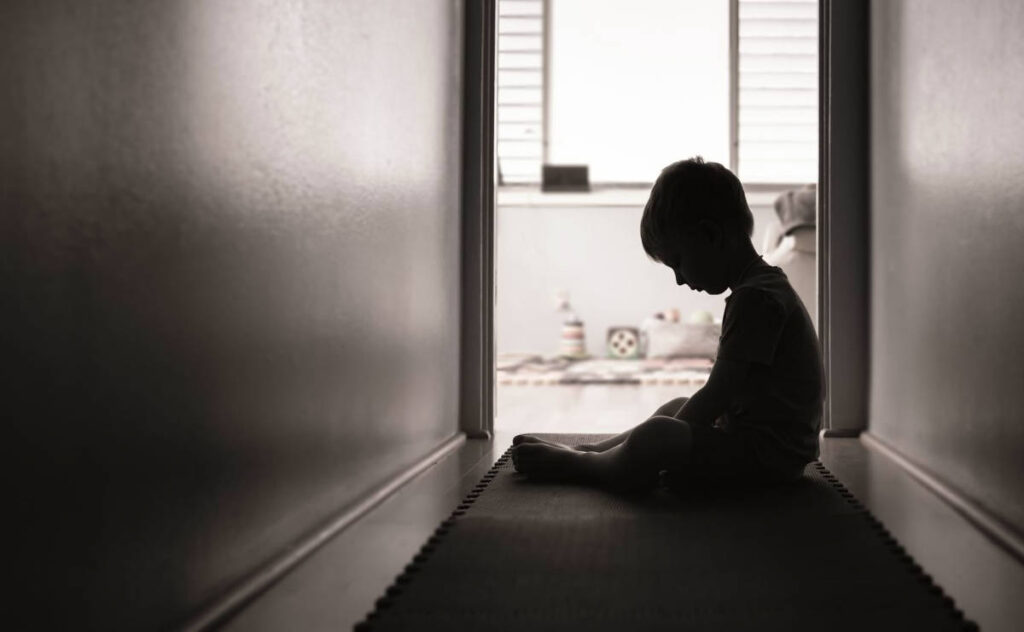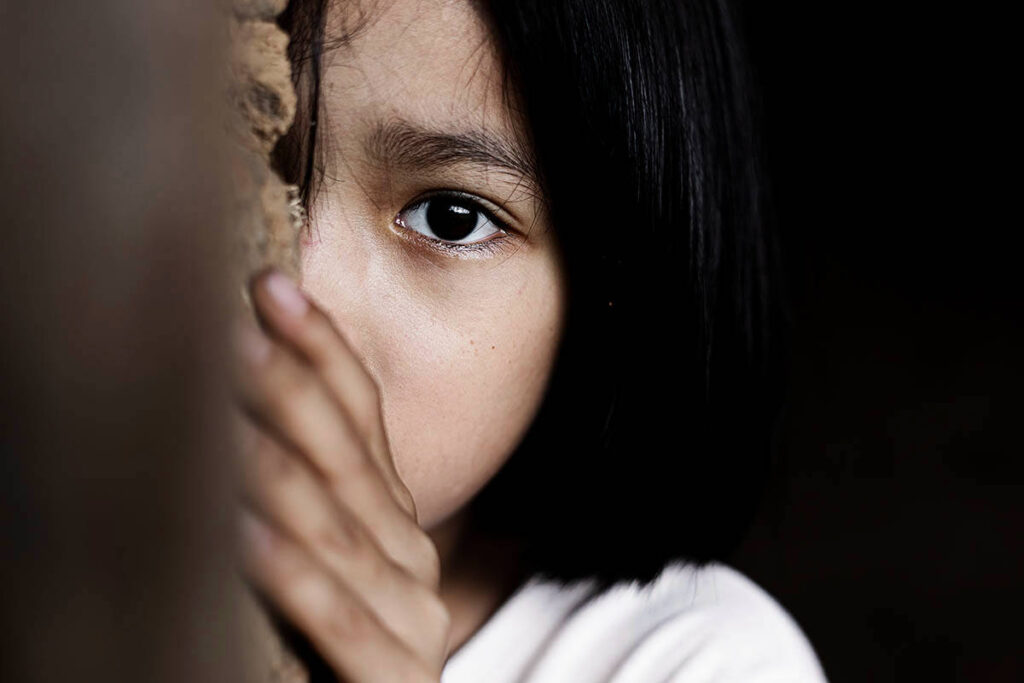How childhood trauma affects adulthood? From a young age, the events we experience have an incredible power to shape and alter our adult lives. Unfortunately, childhood trauma is no exception – it can leave painful marks on adults long after its occurrence. In this blog post, discover the sometimes surprising effects of past traumas and how growing-up experiences continue to influence us in adulthood!

Traumatic experiences in childhood can leave lasting, painful marks throughout life – but they don’t have to. By exploring the different forms of trauma that kids suffer and how these manifest into adulthood, we provide a path toward healing and rebuilding after having experienced such events early on. And if you know someone who has gone through something similar or want to better understand what it feels like? Keep reading for tips & resources on understanding childhood-related traumas and moving forward with resilience!
Overview of how childhood trauma affects adulthood?
Trauma during childhood can reach far into adulthood, influencing numerous problems like anxiety, depression, PTSD, and addiction – all of which can fiercely obstruct our sense of security in both work & relationships. The good news is these issues are incredibly treatable with help from the many reputable resources available to assist adults who have experienced trauma on their journey toward healing.
How Trauma Impacts Development
The effects of childhood trauma can linger well into adulthood. Its damaging impact on development is undeniable, creating problems with memory retention, communication skills, and problem-solving capabilities as adults. Additionally, individuals who’ve experienced trauma may suffer from issues related to emotions and relationships that further lead to a loss in self-worth – sadly even resulting in physical health consequences later down the line!
Physical and emotional responses
Trauma can cause a wide range of physical and emotional responses, from shock to feeling like a robot. But when these feelings persist for prolonged periods or become overwhelming, it may be indicative of Post-Traumatic Stress Disorder (PTSD). Whether we feel victimized by the trauma itself or guilty over our own actions during that time—it’s important to pay attention and take care!
Impact on brain development
Children’s brains are incredibly malleable, which means that traumatic experiences can have a devastating effect on their development. The effects of trauma linger well beyond the event itself – think memory issues, learning difficulties, and behavioral changes which may persist long-term. Seeking treatment promptly is key to helping children recover from these events and bounce back with optimal chip functioning!
Long-term Effects of Childhood Trauma
The repercussions of childhood traumas can be far-reaching and take different forms from person to person. While anxiety, depression, or even PTSD may appear in the short term for many who have experienced trauma – long after its effects still remain. These might include the destruction of relationships, self-worth issues, and an inability to properly handle stressors that life throws your way. If you’ve ever found yourself struggling with these struggles don’t hesitate to reach out! There are a myriad of resources available; all waiting just around the corner ready to help see you through this difficult time
Increased risk of mental health issues
Childhood trauma is far more than a bumpy road – it can be an obstacle course of mental health issues, with anxiety, depression, and PTSD just some of the hurdles to overcome. However, there are many resources out there for those affected by these problems. Don’t suffer in silence – take action now if you’re feeling overwhelmed or struggling! Reach out for professional help without shame: everyone deserves a chance at peace of mind and happiness.
Difficulty forming healthy relationships
Coping with trauma can be extremely challenging, as it often creates an irrational fear of close relationships and a lack of trust in others. If you’ve experienced something traumatic in the past, opening up to people may seem almost impossible – but that doesn’t mean rebuilding healthy connections is out of reach! Working through your emotions with therapy or counseling could help you on your journey toward creating strong bonds again.
Increased risk of addiction
Trauma is no joke; according to a study published in the journal “Addiction,” experiencing physical or sexual abuse could significantly up your risk of developing an addiction. Researchers at the University of Utah looked into this link by surveying adults treated for addictions and discovered that those who faced serious trauma – especially during childhood – had particularly high levels of vulnerability. The research team suggested that therapies specifically tailored toward helping survivors deal with their traumas might be more effective than traditional treatment approaches alone.
Strategies for Coping with Childhood Trauma
Childhood trauma can be an intimidating reality, but with the right tactics, they don’t have to last forever! Identifying effective strategies is key to overcoming adversities both big and small.
- Everyone copes with trauma differently – for some people, verbalizing their experiences can be cathartic; others find that pouring out emotions on paper or through creative expression brings healing. No matter the method you choose to address traumas, know that it is possible to heal!
- Everyone processes trauma differently – some need a shoulder to lean on, and others require moments of solitude for reflection. Whichever approach you take, it’s important to find what works best for you!
- Whether you want to find a way to make your trauma hurt less or more, there is no one-size-fits-all remedy for dealing with past pain. Differing strategies may offer unique solutions and it’s important to explore what fits best for each individual circumstance.
- When it comes to managing childhood trauma, one size doesn’t fit all. It’s essential to find an approach that you’re comfortable with and that works for your needs—whether that be through reading self-help guides or another form of healing entirely. Don’t get overwhelmed by the challenge; instead, focus on discovering a solution tailored just for you!

Accessing counseling and therapy
Struggling with life’s big and small issues? Consider seeking counseling or therapy – it could be the key to unlocking a new perspective on whatever challenges you’re facing.
- Struggling to manage life’s challenges? Taking the time for self-reflection can help you gain greater control and wisdom as well as develop reliable ways of dealing with stressful situations.
- Struggling with your problems? Therapy can be the ace in the hole you need to sort things out. Gain an appreciation for yourself and find new ways of dealing with life’s obstacles – all while building strong relationships along the way!
- Counseling and therapy offer the opportunity to develop a healthier relationship with yourself, granting newfound self-confidence – plus helping you tackle those pesky times of stress or anxiety in clever new ways!
Practicing self-care
It’s no secret that taking care of yourself is a hard job, but it pays off in the end. Don’t let anyone tell you otherwise! Self-care isn’t just about being selfish – far from it. When we make sure to look after ourselves, not only do those close to us benefit; our whole circle can reap the rewards too!
Taking care of yourself doesn’t just have to be a one-off – it should become part and parcel of your everyday life. From taking the time for some much-needed ‘me’ moments, like unwinding in a steamy bath or getting lost in your favorite book, to simply stepping outside into nature’s peaceful embrace – whatever way you choose, regular self-care will ensure that you can better look after those around you!
Building a support system
Trauma is no joke and its long-term effects on kids can be traumatizing in itself. Creating a support system for them to help cope should not be taken lightly! This network of people may include family, friends, or experienced professionals; having someone they trust to talk through their experiences with can make all the difference when feeling overwhelmed or scared.
Conclusion
Trauma is no joke – it can hound us into our adult years if we fail to properly process and cope with its occurrence in childhood. While avoiding trauma entirely may be impossible, understanding the repercussions of these events allows us to build better lives for ourselves down the road. Recognizing this impact on physical and mental health as well as relationships enables those scathed by trauma to put things back together piece-by-piece over time. We hope you found this helpful; remember that your friends might too! Our blog has plenty more tips like these, so feel free to swing by anytime!
More reading suggestions:


